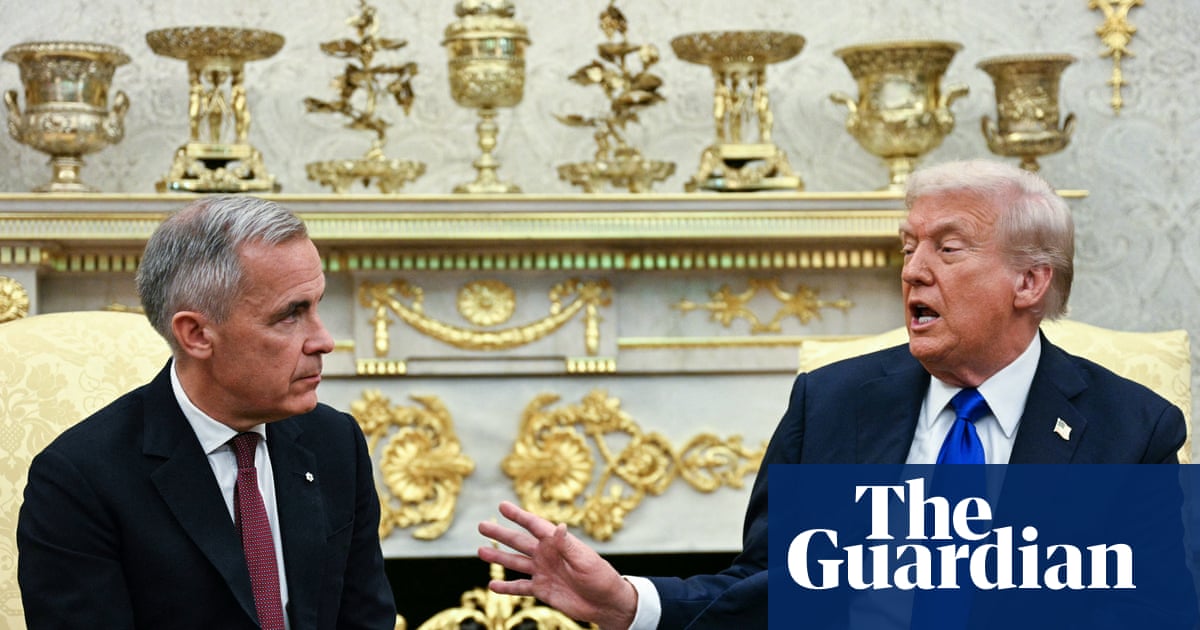WASHINGTON — Nonprofit groups with disparate missions are banding together in an alliance aimed at protecting one another if they become targets of President Donald Trump’s ire, people involved in the initiative said.
Referring to the effort colloquially as a kind of “NATO for nonprofits,” the groups plan to rally behind an embattled nonprofit by offering strategic and legal support, issuing supportive statements and loaning staff who would help keep it afloat until the crisis passes.
Just as the NATO military alliance views an attack on one member state as an attack on all, the network of nonprofits would serve as a bulwark against Trump administration actions that disrupt the work of groups that are providing lawful services and exercising free speech, supporters of the effort said.
A leader of the initiative is Vanita Gupta, who served as a senior Justice Department official in the Obama and Biden administrations. She has also worked for a number of civil rights organizations, including as president and CEO of the Leadership Conference on Civil and Human Rights.
“The only way through this moment is with collective action,” Gupta told NBC News in an interview. “When you have an administration that tries to silence people through the cudgel of the federal government, the only way through is to work together.”
In some countries, she added, the government’s practice is to create “so much fear and such a chilling effect for organizations that do critical work, that they’re forced to spend 100% of their time on self-protection. Organizations know that their work to uphold the rule of law and protect vulnerable communities cannot stop.”
Gupta and others offered few details about how the effort would operate or how many nonprofits would take part. But nonprofits are already showing solidarity in the face of potential threats from the Trump administration.
One indicator came this week. More than 3,700 groups signed onto a letter condemning the administration for what they described as a campaign to "intimidate and silence charitable groups through executive action."
"What you had was an unprecedented array of groups large and small, of every different kind, coming together with courage and strength to say this is what we stand for," said Norm Eisen, co-founder of the Democracy Defenders Fund, a nonpartisan pro-democracy organization.
Vanita Gupta is helping organize a "NATO for nonprofits" of groups that might be targeted by the Trump administration. (Andrade-Rhoades / Bloomberg via Getty Images file)
One of Trump’s recurrent messages is that the United States is under siege “from within” its borders. He has portrayed the "radical left" as perpetrators of political violence, though a study from last year, formerly on the Justice Department’s website, found that “the number of far-right attacks continues to outpace all other types of terrorism and domestic violent extremism.”
Trump clamped down after his friend and political ally, Charlie Kirk, was assassinated during a speaking event at a Utah university Sept. 10. He quickly blamed the "radical left," though officials have told NBC News that they have found "no evidence" of any ties between left-wing groups and the alleged shooter.
Two weeks after the shooting, Trump signed an executive memorandum titled, “Countering Domestic Terrorism and Organized Political Violence."
The memo invoked Kirk's murder in calling for a "national strategy to investigate, prosecute and disrupt entities and individuals engaged in acts of political violence and intimidation designed to suppress lawful political activity or obstruct the rule of law." The attorney general, IRS commissioner, treasury secretary and others were all told to assist.
The directive was open-ended enough that some nonprofit officials fear that the Trump administration might shut down their work by mischaracterizing it as criminal in nature.
Sarah Saadian, senior vice president for public policy and campaigns at the National Council of Nonprofits, said there is “enormous fear among nonprofits."
"The administration is trying to use that to silence nonprofits, chill their freedom of speech and intimidate them," she added. "That sets a really dangerous precedent for this and future administrations to target nonprofits because they disagree with their mission and who they serve.”
In response, the nonprofit world produced the open letter, prefiguring the kind of collective action that the “NATO for nonprofits” endeavor might take.
The signatories vary widely, underscoring the depth of support. Some groups focus on environmental causes; others advocate for consumer and women’s rights, educational improvements or the arts.
“We of course unequivocally reject political violence. But we won’t mince words,” the letter reads. “No president — Democrat or Republican — should have the power to punish nonprofit organizations simply because he disagrees with them.”
Joint action is something of a unique approach in the Trump era. Others in Trump's crosshairs have faced him on their own, either by choice or necessity.
The all-for-one strategy grew out of a recognition that acting in isolation is futile, Gupta said. One need only consider the fate of law firms that ran afoul of Trump.
Some firms struck deals with the White House that obligated them to perform millions of dollars in free legal work for causes Trump supports. Others fought him in court and prevailed.
Watching the episode unfold, nonprofit groups recognized that there's no upside to staying separate and allowing the Trump administration to target them one by one.
“One of the most important things we can do in this moment is make clear that our sector stands together in contrast to the law firms, where some capitulated and were picked off,” said Lisa Gilbert, co-president of Public Citizen, a progressive consumer group.
Should the foray into cooperative action succeed, advocates say it could become a model for other parts of society.
“We do hope that other sectors, should they become the target of unfair bullying, will also stand strong. And they can learn from this example,” Eisen said.
This article was originally published on NBCNews.com

 German (DE)
German (DE)  English (US)
English (US)  Spanish (ES)
Spanish (ES)  French (FR)
French (FR)  Hindi (IN)
Hindi (IN)  Italian (IT)
Italian (IT)  Russian (RU)
Russian (RU) 
























Comments